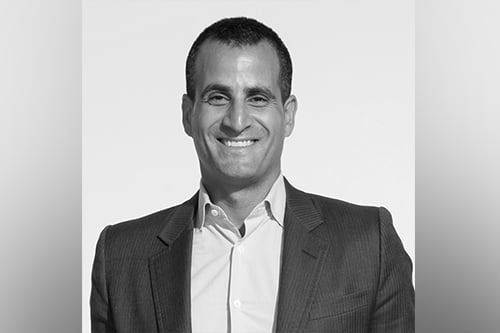ETF pioneer believes his firm’s core approach is providing global leadership on the issue

Som Seif believes his firm is providing global leadership in the ESG arena by making it the heart of its core business.
Purpose Investments last week revealed that, after five years collecting data, it is now incorporating ESG factors across the board to create both social benefits and added value. This includes ESG scores for each fund on its website.
Seif believes this approach of having ESG aligned with the company’s inherent values rather than as a response to perceived customer demand, is critical to the way the industry has to think moving forward.
Many approaches to ESG, he told WP, took the form of a negative screening method, removing companies you didn’t like in a process separate from how you make money for clients. Instead, he believes ESG should be viewed in the same way that valuation and earnings are attractive, and that adherence to these values will have a positive influence on an investor's returns.
When Purpose began, after Seif sold former company Claymore Investments to BlackRock, he said the data was simply not there to back up that message and fulfil his ambition of putting ESG at the centre of his business.
He said: “Effectively, we've spent the past four or five years continuously testing it, building it and using our own data sets to be able to get there. It was clear you could take a positive screening methodology, the same way I do with other factors like quality and value, and implement them to make our clients more money, while at the same time doing so in a way that allows us to allocate capital for change across our entire asset base.
“That’s why we did it – and it’s such an amazing effort. We, as an organization have always thought to lead the industry both at Purpose and when I built Claymore. We do it not necessarily to build massive market share but rather to show our peers there’s a better way to do what we do as money managers.
“My hope is that every money manager in this country and around the world looks at it and says, yeah we can do the same.”
We founded Purpose because we knew a modern investment firm could think differently. With #ESG, we found a way to support social good without compromising performance. What challenges have you faced incorporating ESG in your portfolio? #corpgov https://t.co/VUXnufTzKz pic.twitter.com/THNQtpH7Mm
— Som Seif (@somseif) October 2, 2019
Seif said it’s understandable why, as fiduciaries, being embroiled in a “values debate” around certain investments, like tobacco firms or polluters, raised concerns about failing to maximize returns. Maybe an oil company, for example, would make a client more money but despite the client or money manager wanting to go the ESG route, there wasn't a willingness to give up that performance.
However, there is a recognition now that, implemented properly by weighting these companies more appropriately in your asset mix, a money manager can actually add return and, at a minimum, not negatively impact them.
“It's really changed the tone of the conversation,” Seif said. “Institutional investors today are focusing more and more on how they can implement this. Yes, there is a younger millennial move to that but going further, I think many people who have a set of values are saying that if they have a choice, and it’s not going to have a negative impact on returns, then it really changes their perspective and they prefer to invest with this as a priority.”
He added: “There are firms out there … what I call ethical funds that do negative screening and things like that. That's not what we're doing. We're a money manager that’s incorporated it as a core across our business. To me, I think it’s unique.”
While stressing the importance of all three elements - environmental, social and governance - Seif told WP he naturally gravitates towards social factors through themes like workforce, health and safety, diversity and employee training. He relates to the entrepreneurial challenge of creating a culture of success and believes that companies with great cultures, that drive human culture in unique ways, can create greater value for shareholders.
In terms of governance, a poor management model may not make it a bad investment. In fact, its fundamentals may still be good despite worrying indicators. Seif explained that his weighting methodology will, therefore, reflect this.
"We don't say that a company that has multi-class share voting is not allowed in our portfolio - that would negative screening. We say, if it has that, it has a different weighting methodology. If everything about the company, fundamentally, is rip-roaring and doing extremely well, then those weightings will be positive on value or quality or momentum or things like that. When you add things up, it may still be a good company to own but it's proving that its governance model isn't getting in the way of it being able to do that.
"But more often than not, a positive governance framework has a better impact for the long-term investor."



